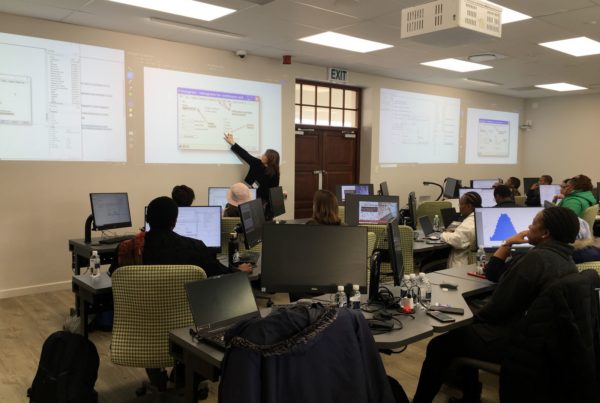RESEP researcher, Martin Gustafsson, has been involved in a few studies commissioned by the UNESCO Institute for Statistics (UIS) in recent years. Most recently, he has modelled the possible effects of the COVID-19 pandemic on global indicators of learning proficiency. The results of this were published in March 2021 in a report titled “Pandemic-related disruptions to schooling and impacts on learning proficiency indicators: A focus on the early grades” (PDF available below). A background Excel file has also been made available. The work draws on earlier work for UIS completed shortly before the pandemic. The report is part of what informs UNESCO’s position on learning losses and the necessary interventions to limit the harm of the pandemic on schooling. As the analysis shows, the evidence currently available already points to the effects of the pandemic on learning having been devastating. But it will also necessary to take stock of new evidence, in particular, country-specific studies into the magnitudes of learning losses, as this emerges, to firm up the picture of the pandemic’s effect. This work is just one of several ways in which RESEP has contributed to investigating the pandemic and the required policy responses. Specifically, RESEP researchers have been involved in producing numerous policy papers for the NIDS-CRAM project, as well as standalone standalone outputs (examples seen here and here) and media contributions (examples seen here, here and here).
DOWNLOAD PDFPopular Posts
Other Readings
- Repetition and dropout in South Africa before, during and after COVID-19 January 15, 2024
- COVID-19 and inequality in reading outcomes in South Africa: PIRLS 2016 and 2021 December 23, 2023
- What rich new education data can tell us December 22, 2023
- Early Grade Repetition in South Africa: Implications for Reading November 15, 2023
- The Impact of Agricultural Minimum Wages on Worker Flows in South Africa November 14, 2023
Related Posts
 Conferences and WorkshopsNews and Opinion
Conferences and WorkshopsNews and Opinion
Resep quantitative analysis course in the economics of education
Ryno PageJuly 12, 2024
EducationHealthNews and OpinionResearch Outputs

Assessment matters: What can we understand about the National Senior Certificate results during COVID-19 from university entrance exams?
Ryno PageMay 25, 2024
 AuthorsEducationEducation - Reports & PolicyEducation - Working PapersMartin GustafssonNews and OpinionUncategorized
AuthorsEducationEducation - Reports & PolicyEducation - Working PapersMartin GustafssonNews and OpinionUncategorized
A brief look behind the flat 2015 to 2019 TIMSS Grade 5 trend for South Africa
Ryno PageApril 13, 2024





